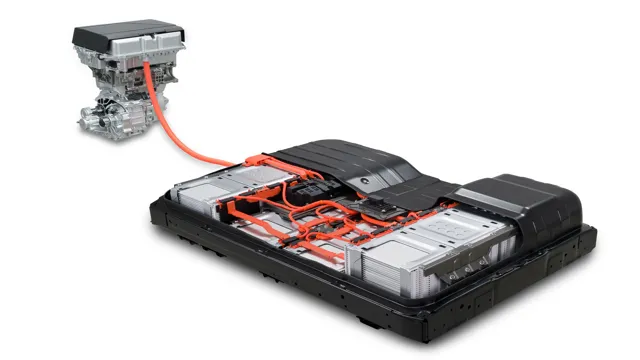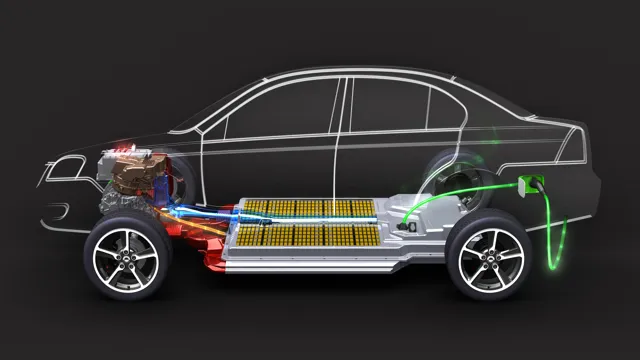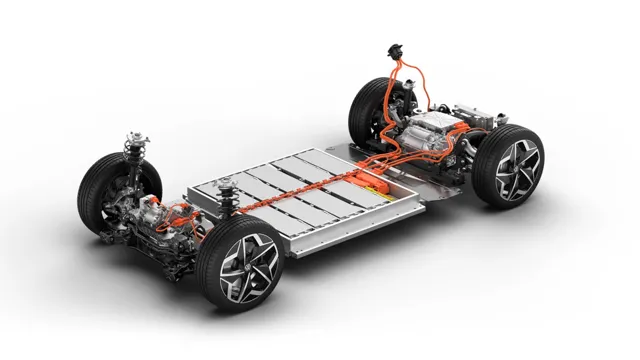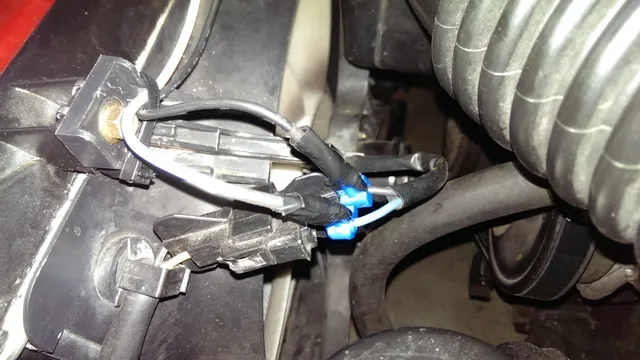Revving Up the Electric Car Battery Race: Who Will Cross the Finish Line First?
Are you keeping up with the exciting electric car battery race? It seems like every major car company is striving to produce the most efficient and long-lasting battery for their electric vehicles. From Tesla to Volkswagen, manufacturers are pouring billions of dollars into research and development, hoping to come out on top in this competitive market. But what exactly is the electric car battery race? Simply put, it’s a race to create the most advanced and reliable battery for electric cars.
These batteries are the key to unlocking the true potential of electric vehicles, as they determine their range and overall performance. In recent years, we’ve seen impressive breakthroughs in the world of electric car batteries. Tesla’s new Model S Plaid boasts a range of over 500 miles, blowing other EVs out of the water.
Meanwhile, Volkswagen’s new ID.4 promises a range of up to 250 miles on a single charge. But the electric car battery race is far from over.
Many companies are still striving to produce even better batteries, with faster charging times and longer ranges. This means that we can expect even more exciting developments in the world of electric cars in the near future. Overall, the electric car battery race is an exciting and fast-paced industry, with groundbreaking advancements being made all the time.
Who will come out on top? Only time will tell. But one thing is for sure – the future of electric cars is looking brighter than ever before.
Why an electric car battery race?
The electric car battery race is significant because it is the defining factor in the success of electric vehicles. The battery is the heart of any electric car, and the technology behind it determines its efficiency, range, and cost. For car manufacturers and EV enthusiasts alike, developing a better battery is a top priority.
The aim is to create a battery that can store more energy, charge faster, and last longer. This will enable electric cars to compete with traditional gasoline vehicles in terms of range, performance, and affordability. With the growth of the electric car market, there is also a race to develop sustainable and environmentally friendly batteries.
Not only will the electric car battery race pave the way for better electric cars, but it will also lead to the development of new technology and innovations that will benefit society as a whole.
Environmental impact of battery production and disposal
As electric vehicles become more widely adopted, concerns about the environmental impact of battery production and disposal have come to the forefront. While it’s true that electric vehicles produce fewer emissions during operation than gasoline-powered cars, the manufacturing process for the batteries that power these vehicles can be resource-intensive and create pollution. Additionally, batteries eventually need to be disposed of or recycled, which can have its own environmental consequences.
This is why there’s currently what many are calling an “electric car battery race” – there’s a massive push to find more sustainable and efficient ways to produce and dispose of these vital components. By improving the environmental impact of electric vehicle batteries, we can continue to move towards a more sustainable transportation future while minimizing negative impacts on the earth.
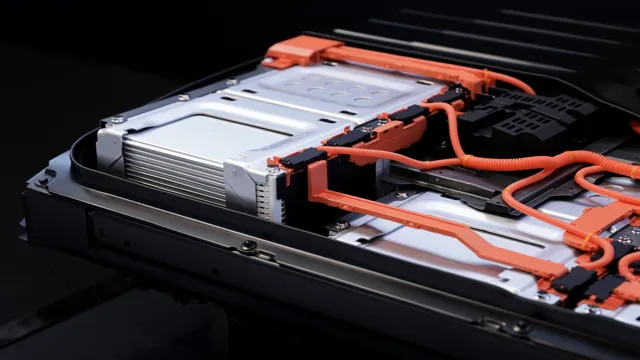
Importance of reducing carbon emissions
Reducing carbon emissions has become increasingly important in recent years as climate change becomes a pressing issue. As a result, industries such as the automotive industry have begun to focus on electric car batteries as a means of reducing their carbon footprint. But why an electric car battery race? Well, the development of more advanced and efficient electric car batteries can greatly reduce the reliance on fossil fuels and the emissions they produce.
By encouraging competition amongst manufacturers, we can accelerate the development of these batteries and bring them to market faster. Additionally, this competition can lead to better prices for consumers and greater innovation in the industry as a whole. It’s important to realize that reducing carbon emissions isn’t just about sustainability for the planet, but it can also benefit businesses and individuals alike in numerous ways.
Current state of the electric car battery industry
The electric car battery race is heating up, as companies work to develop better and longer-lasting batteries to power the growing fleet of electric vehicles on the road. Currently, the industry is dominated by a handful of major players, including Tesla, LG Chem, Panasonic, and CATL. These companies are constantly innovating and investing in research and development to increase battery capacity and reduce costs.
One major challenge facing the industry is the reliance on rare and expensive materials, such as cobalt and lithium, which can limit production and drive up prices. However, new technologies and alternative materials are being explored, such as solid-state batteries and sodium-ion batteries, which could provide more sustainable and affordable options in the future. As the demand for electric vehicles continues to grow, the battery industry will play a crucial role in shaping the future of transportation.
Comparing battery technology among brands
When it comes to electric cars and their batteries, each brand has its own unique technology and approach. Currently, the electric car battery industry is making significant progress in terms of innovation and affordability. The major players in the market, like Tesla and GM, are constantly improving their battery technology to increase power and range while decreasing cost.
On the other hand, newer brands like Rivian and Lucid Motors are developing their own unique battery solutions. As the demand for electric cars continues to grow, the battery technology is becoming more efficient and affordable for consumers. It’s a really exciting time to be in the electric car market!
Availability and accessibility of charging stations
In today’s world, there is a growing interest in the use of electric cars as people become environmentally conscious. However, the current state of the electric car battery industry is still in its infancy, with a lot of work needed to improve the technology and increase the range of electric cars. One of the biggest concerns for electric car owners is the availability and accessibility of charging stations.
While there are more charging stations being installed across the country, they are not as widely available as gas stations, making it challenging for electric car owners to travel long distances. Therefore, the electric car industry needs to invest in developing a more comprehensive and efficient charging infrastructure, especially in rural and remote areas. In doing so, the electric car owners’ experience can be improved, and the electric vehicles’ market can expand as a result.
In conclusion, while the electric car industry has made great strides in technology and innovation, there is still much work to be done to ensure its success and widespread adoption.
Challenges for battery longevity and performance
The current state of the electric car battery industry poses significant challenges for the longevity and performance of these batteries. While advancements in technology have led to increased efficiency and longer driving ranges, there are still limitations to how long these batteries can last before needing to be replaced. One major challenge is the issue of battery degradation over time, which can lead to reduced capacity and slower charging times.
This can be caused by a variety of factors, including temperature fluctuations and frequent full or deep discharges. Another challenge is the availability of rare materials needed to manufacture these batteries, such as cobalt and lithium. While efforts are being made to reduce dependency on these materials, it can still be difficult to source them sustainably.
Overall, while electric car batteries have come a long way in recent years, there is still a long way to go in terms of ensuring their longevity and sustainability.
Innovations and advancements driving the race
The electric car battery race keeps gaining momentum, and innovations and advancements are constantly emerging to push the boundaries of what is currently possible. Major automobile manufacturers are investing heavily in research and development to create high-performance batteries that will allow electric vehicles to travel further on a single charge, charge faster, and last longer. As the demand for electric cars continues to grow, so does the competition to create the most advanced and efficient battery technology.
From solid-state batteries to fast-charging stations, there are countless innovations underway that could revolutionize the electric car industry. And as the technology evolves, we can expect the electric car battery race to become even more intense, with companies battling it out to see who can develop the most cutting-edge technology that will take electric cars to the next level.
New materials and designs for batteries
As the demand for electric vehicles continues to grow, innovations and advancements in battery technology are driving the race towards creating more efficient and sustainable batteries. One of the key areas of focus in this industry is the development of new materials and designs for batteries. One such material gaining popularity is silicon, which has the potential to increase energy density and reduce costs.
Other advancements include the use of sodium-ion batteries, which are cheaper and more abundant than traditional lithium-ion batteries. Additionally, the development of solid-state batteries, which use a solid electrolyte instead of a liquid one, increases energy density and safety. These innovations and advancements in battery technology are not only improving electric vehicles but also have the potential to revolutionize energy storage for a sustainable future.
Investments in research and development
Investments in research and development have always been the driving force behind innovations and advancements in various fields. From medicine to technology, businesses and organizations are continuously investing in extensive research programs to come up with breakthrough solutions to modern-day problems. Not only does this lead to greater understanding, but it also leads to new and improved products and services that benefit society.
The race to stay ahead of the competition and meet ever-changing consumer demands has resulted in increased investments in research and development by both established companies and startups. This has resulted in new and emerging technologies such as artificial intelligence, machine learning, and robotics, which are transforming the way we live and work. By investing in research and development, businesses can discover new solutions to complex problems, stay competitive in their respective industries, and ultimately help shape the future.
The future of electric car battery technology
With the electric car battery race heating up, the future of electric car battery technology looks very promising. There is a whole world of discovery, innovation and research that’s waiting to be explored and improved. It’s an exciting time for electric vehicle drivers, as the technology improves to increase driving range, reduce charging time and decrease overall battery costs.
Tesla is leading the competitive pack, continually making advancements in their battery technology and production techniques. However, other players such as LG Chem, Panasonic, and BYD are also investing heavily in this space. The industry is also witnessing an increased focus on solid-state batteries, which have the potential to offer significant improvements in energy density, charging time and safety.
The electric car battery race is creating boundless opportunities, and only time will tell which company will come out on top. One thing is clear: the future of electric car battery technology is looking brighter than ever.
Conclusion
In the electric car battery race, the finish line is constantly moving. Just when we think we’ve hit peak efficiency and range, new technology is developed that propels us forward once again. It’s a never-ending pursuit of progress, where the real winner is the planet we call home.
So let’s keep charging ahead, pushing the limits of what’s possible, and electrifying the future with every kilowatt of energy we can muster.”
FAQs
What is an electric car battery race?
An electric car battery race is a competition that challenges different teams to create electric car batteries that are durable, efficient, and capable of powering the car for longer distances.
How do electric car batteries work?
Electric car batteries work by converting chemical energy into electrical energy that can power the car’s electric motor. They typically use lithium-ion batteries that store electrical energy and release it as needed to power the car.
Are electric car batteries better for the environment than gasoline cars?
Yes, electric car batteries are generally better for the environment because they produce fewer emissions compared to gasoline cars. They also use renewable energy sources to recharge, such as solar or wind power, which reduces their carbon footprint.
How long do electric car batteries last?
The lifespan of an electric car battery varies depending on several factors, such as driving habits, weather conditions, and battery type. On average, a lithium-ion battery can last around 8 to 10 years before it needs to be replaced.
